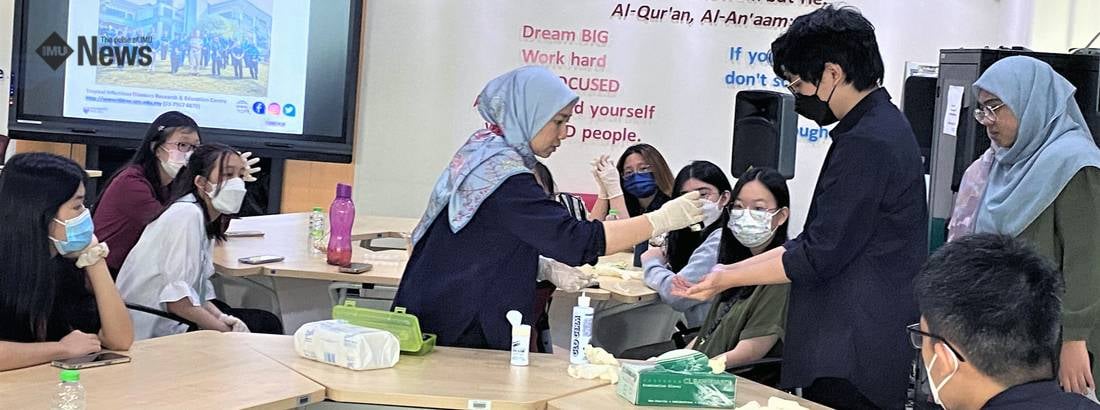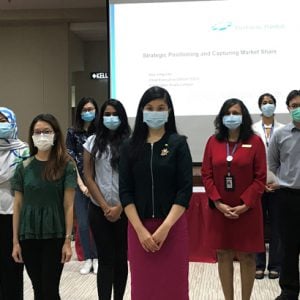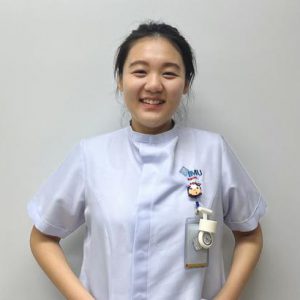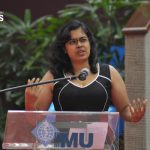With the advancement in life sciences research, awareness on biorisk management has become important, especially in the handling with infectious biological agents. Two of the major components in biorisk management are biosafety and biosecurity. While biosafety focuses on how to protect individuals, the public, laboratories and environment from accidental exposure to potentially hazardous biological agents, biosecurity aims to prevent the misuse of pathogens, toxins and any other biological materials via loss, theft, diversion, or intentional release.
On 15 May 2023, a group of students from the IMU Foundation in Science and Medical Biotechnology programmes, accompanied by five lecturers, visited the Tropical Infectious Disease Research and Education Centre (TIDREC) at University Malaya. The visit was organised by the Division of Applied Biomedical Sciences and Biotechnology from the School of Health Sciences, with the purpose of instilling awareness on biosafety and biosecurity to students through initial exposure to the facility.
TIDREC is also the World Health Organization (WHO) Collaborating Centre for Arbovirus Reference and Research, and recently has been designated as one of the only three global outposts of the Tick Cell Biobank. Besides conducting research on vector and vector-borne diseases, emerging zoonotic diseases, vaccines, and protein therapeutics, TIDREC also focus on research and training involving biosafety and biosecurity. As the only centre in Malaysia that operates the first fully certified modular and mobile biosafety level 3 (BSL-3) training facility, TIDREC also oversees the operation of biosafety level 2 (BSL-2) & 3 (BSL-3) laboratories for research involving highly virulent pathogens.
IMU students were welcomed by the executive director of TIDREC, Prof Dr Sazaly Abu Bakar, and his team of researchers. During the visit, IMU students were first introduced to the TIDREC research programmes and the key principles of biosafety and biosecurity, followed by the tour to mock BSL-3 lab to learn about the lab setting with differential pressure, gauges and personal protective equipment (PPE).
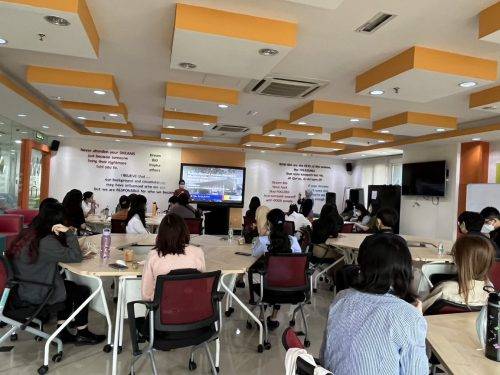
In addition, students also learnt about gross contamination and the correct method to don (wear) and doff (remove) gloves safely through interactive activities.
The visit ended with a group photo with Prof Sazaly and the friendly TIDREC staff. Students took home not only the first experience in a BSL-3 lab training facility, but also the basic knowledge of biosafety and biosecurity.
Students’ Comments about this Visit
“The trip to TIDREC gave me a new experience as I got to see the environment of working in a BSL-3 laboratory. As a Medical Biotechnology student, it was a good exposure in terms of preparing ourselves for future work relating to infectious diseases research. It showed me the importance of biosafety in the lab that protects myself and others.”
Norsarah Binti Mohamad Nazuir (MB122)
“It was a great experience to visit the bio safety lab at TIDREC and also learn about their workshops. The most unforgettable experience of this visit was learning how to take off laboratory gloves correctly. In short, I am grateful that I joined the visit as the trip to TIDREC was definitely eye-opening. “
Rachelle Chin Yuun Yeen (MB121)
“The field visit to the Tropical Infectious Disease Research and Education Centre (TIDREC) at University Malaya was a great experience for me as this was the first time that I had the opportunity to explore and learn about Biosafety Level 3 labs. This workshop has allowed me to develop great insight about the BSL-3 labs, the difference between biosafety and biosecurity, proper removal of gloves, and occupational safety. Overall, this field trip has provided me an enjoyable learning experience.”
Goh Yu Hong (FIS222)




